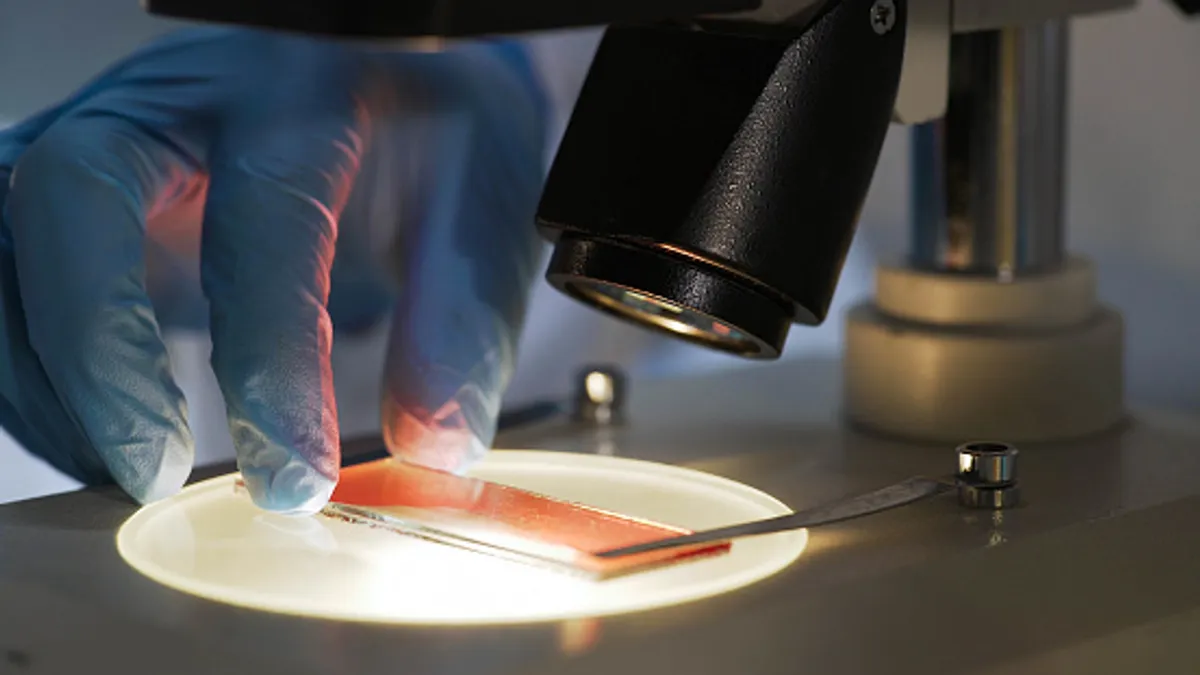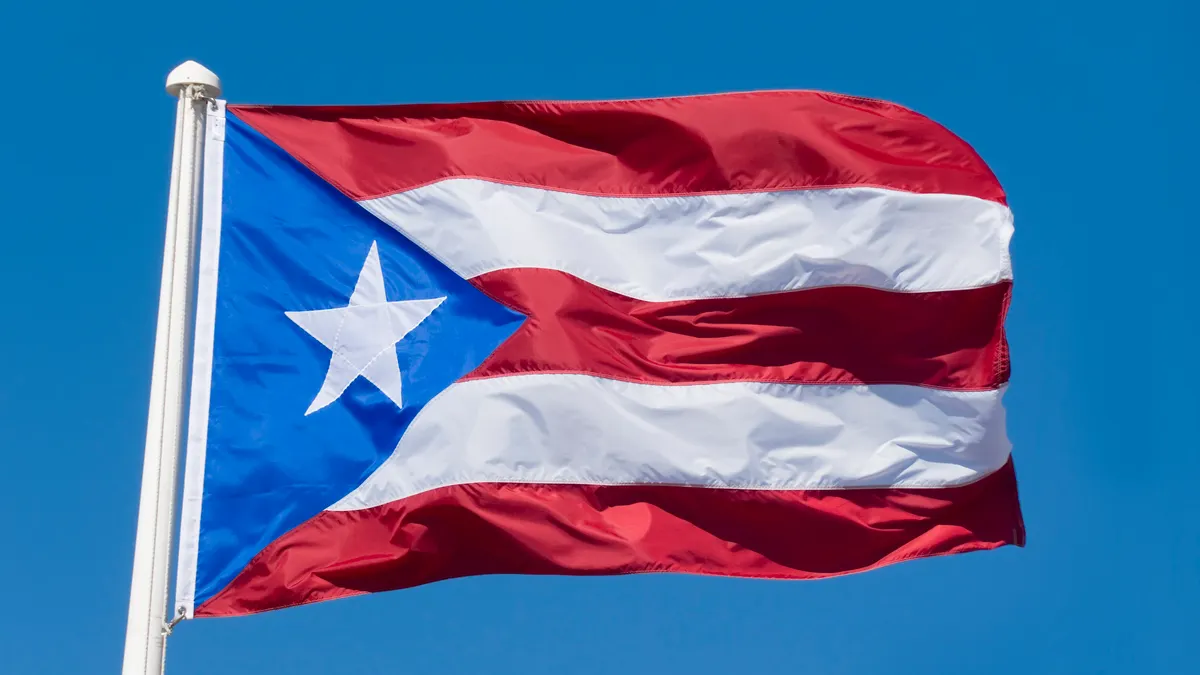Regeneron has conducted cutting-edge oncology research since checkpoint inhibitors were still the new kids on the block, and before blockbusters like Keytruda and Opdivo were even close to mainstream success. But despite massive scientific and financial achievement in other areas, Regeneron is still playing catch-up in cancer.

Now, the company hopes a packed pipeline will propel its relevance in the next wave of cancer therapies. Dr. Israel Lowy, senior vice president of translational and clinical sciences in oncology, sees a bright future for Regeneron in bringing combinations to the market that could change the disease paradigm even further than their predecessors.
Regeneron is known for playing the long game in the name of next-generation science — and has done so for a long time, Lowy pointed out.
“The company is now more than 35 years old, and for many years, the line on Regeneron was: great science, no products,” Lowy said. “Now we have many products across multiple therapeutic areas, and all along, there was an openness to understanding the key scientific questions in each therapeutic area.”
Still, the company remains an underdog in cancer. Regeneron took off running with immuno-oncology R&D shortly after Lowy, who attended Columbia University with the company’s co-founder and chief scientific officer Dr. George Yancopoulos, joined in 2010. But it wasn’t until its anti-PD-1 therapy Libtayo gained FDA approval in 2018 for squamous cell carcinoma that the company finally had a horse in the immuno-oncology race.
“We started figuring out a strategy to build a long-term pipeline that could be a potent force in immuno-oncology.”

Dr. Israel Lowy
Senior vice president of translational and clinical sciences in oncology, Regeneron
Libtayo was always meant to be just the beginning in immuno-oncology for Regeneron, Lowy said, and leadership recognized that it arrived later to the game than other PD-1 treatments like Merck & Co.’s Keytruda and Bristol Myers Squibb’s Opdivo. While those went on to become major blockbusters, Libtayo had yet to cross the $1 billion mark in 2023 sales.
Regeneron’s ophthalmology blockbuster Eylea and the immunology success of Dupixent carried the company to its spot among the most valuable pharma companies in the world. But now Lowy and fellow company leaders are emphasizing oncology as Regeneron’s next big step, while acknowledging there will be hurdles along the way.
Bispecific blues
Along with a focus on Libtayo’s development, Regeneron was one of the pioneers in creating the first bispecific molecules, Lowy said. The treatments are now part of a promising field in oncology. And although the company was among the first to bring a bispecific antibody to clinical trials, they also learned that being early can come with challenges.
“Because we were the first, we encountered problems like cytokine release and had to explore how to get patients to tolerate the dose,” Lowy said. “It’s become a very competitive area.”
Early bispecific antibodies like Amgen’s Blincyto for leukemia paved the way with a 2014 approval, followed later on by Johnson & Johnson’s Rybrevant for lung cancer and Tecvayli for multiple myeloma, among others.
Regeneron has been a little slower to the punch, getting its first bispecific Ordspono, a T-cell regulator for lymphoma, past European regulators in August. But the company encountered a speed bump in the U.S. when the FDA rejected the treatment despite positive response rates, citing the lack of a confirmatory trial. The U.S. approval process for lymphoma is still underway.
The company has also faced a setback for a bispecific antibody to treat multiple myeloma, which the FDA rejected due to manufacturing concerns.
Outside of blood cancers, Regeneron is studying bispecifics in solid tumors, now a separate department at the company. One of Lowy’s team’s targets is the antibody CD28, which he said was a “third rail” after showing dangerous side effects almost 20 years ago. But knowing it was also a good target, they charged forward, and now have several CD28-based bispecifics in clinical trials, including one for prostate cancer in phase 2.
Going head-to-head
The biggest turning point for Regeneron is still on the horizon, but not far off, Lowy said. The company’s lead oncology candidate is a combination of Libtayo and a LAG-3 inhibitor called fianlimab, which could together rival BMS’ already approved combo Opdualag in melanoma.
Ironically, Lowy helped develop Opdualag when he worked at Medarex before the company was acquired by BMS in 2009, providing the pharma giant with its immuno-oncology portfolio that included Yervoy and Opdivo.
Now, they’re going head-to-head.
“Even though I helped develop it, we’re going to beat it,” Lowy said.
The phase 3 study in advanced melanoma is expected to read out by the middle of 2025, he said, and will mark a major milestone for the company’s oncology prospects.
Regeneron is also lining up against the “800-pound gorilla” Keytruda with the same combination, Lowy said, seeking to prove superiority in melanoma in another phase 3 study that’s set to wrap in 2026.
On top of the later-stage clinical prospects, Regeneron has also bulked up on cutting-edge collaborations with companies like BioNTech to combine cancer vaccines with a checkpoint blockade. And the acquisition earlier this year of the struggling 2seventy (formerly bluebird) bio’s oncology pipeline has pointed in the direction of cell therapy.
These forthcoming steps for Regeneron will determine whether the company can step up and lead in the next wave of cancer therapies, according to Lowy. And although it’s been a long time coming, he said the science supports a bullish outlook.
“Even in 2010, many people were still skeptical about the ability of these immunotherapies to move the needle,” said Lowy. “But we started figuring out a strategy to build a long-term pipeline that could be a potent force in immuno-oncology.”





















